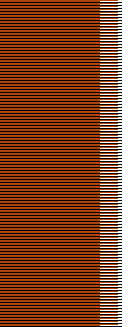

The Sound CardThe Heart of your Computer Audio WorkstationThe sound card (a.k.a. audio interface, sound interface) is one of the most important parts in your recording studio computer. Audio interfaces handle the input and output of audio (and midi) to and from your computer. A few pieces of advice here on what to look for in a good audio interface for recording purposes. The following benefits are what you should get out of great audio cards:
Capability of low latency sustained recording of both audio and midi. If you intend to use recording software like Cubase SX, the sound interface has to support ASIO drivers. Midi connectors (input/output) Among the variety of audio interfaces I can recommend the M-AUDIO Audiophile 24/96 for any home recording environment. In recent years the USB and Firewire external audio interfaces have grown to be of good quality as well. So if you plan on using your laptop as a studio computer, or you simply don't have any PCI slots to spare in your computer, this would be the way to go.
If you know what you're after
or would like to browse for a different card, go
here to browse a variety of good
audio cards at zZounds.com
How the computer
Sound Card Works - History of the computer sound card and how it works,
explained in detail.
Sound
physics, audio interfaces and midi - An explanation of sound physics, sound
interfaces and midi. |

